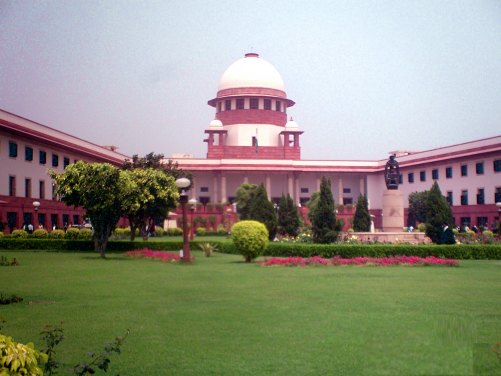By Tamojit Tripathy, Scholar, Utkal University
There are three pillars of democracy – Legislative, Judiciary and Executive. The smooth functioning of democracy fully depends upon these factors which have been enshrined in our constitution and act as separate entities.

However most of the times if we juxtapose these three organs we can find any of these functions transgressing or overstepping each other. The question arises when can we say that proper democracy is maintained?
The simple answer is when the above three parts is working independently. But when the confrontation of these branches arises then the democracy for a citizen is nullified. It is a curse for democracy. So legislators, executives and judicial personnel should not be encroached into their respective spheres where conflict is created.
INDIAN DEMOCRACY: LEGISLATIVE POWERS V/S EXECUTIVE POWERS
There are many instances where conflict between legislators and executives arises. Legislators include MPs, MLAs, and Presidents of ruling parties or influential persons and executives include civil servants, provincial civil servants, others appointed by the President and the Governors.
Sometimes the legislators think that they are supreme because they are elected by the people directly or they occupy or acquire the high level post of the powerful political parties.
At the same time, the executives think that they are supreme because they compete in the toughest exams and outdistance the other talented aspirants. They also think that the legislators by force,coercion,undue influence, illicit wealth, false promises, bequeath the innocent voters and come to power.
These Conflicts lead to transfers, demotion, ill-intent promotion, promotion or transfer from an one department to other departments have been done regularly. This also leads to punishment postings.
Mostly now-a-days punishments of top most executives to less important departments is the brightest epitomisation.e.g. transfers of civil servants to Arts, Culture or transportation departments etc. By this step it the the general people who suffer a lot.
JUDICIARY V/S EXECUTIVES
Though judiciary and executives are sometime dependent to each other, judiciary has more power to deal with. However, cooperation of executives work is required. Without some executives work, judiciary can’t make its own function e.g. police & court.
Court & tribunals judgements have greater impact on executives but there are certain limitations on the legal perspective. Sometimes law is also a boon for a corrupt executive. Section 197 of Code of Criminal Procedure(CrPc) procedure says that no court shall take cognizance of a public servant without the prior permission from their competent authority.
Due to this public suffers a lot and proper administration & democracy is hampered.So quid pro quo basis of a public servant leads to an abysmal administration for sure.
LEGISLATIVE V/S JUDICIARY
In India, the relationship between Legislative and Judiciary has generated intense debate among jurists & political analysts.Has the over-active judiciary through its various pronouncements overstepped or it is simply trying to fill the gaps where the legislatures have failed to deliver?
The issue in this regard came on July10,2013 when the Apex Court ruled that MPs & MLAs on conviction of certain offences will be immediately disqualified from holding membership of the House without being given 3months of the appeal,as was the case before.The ruling invited sharp criticism from political parties & jurists.
Former Supreme Court Judge Markandeya Katju expressed reservation over it saying that it should be viewed as judiciary can’t make laws. Making the laws is the work of legislature. Because the court struck down Section 8(4) of the Representation of the Peoples Act 1951 which protects convicted lawmakers against disqualification on a ground of pendency of appeal against their conviction of certain offences:
A person convicted any offences and sentenced to imprisonment for varying terms under Section8(1),(2),(3) shall be disqualified for a further period of 6 years since release.But the Section8(4) of the RP Act gives protection to MPs & MLAs as they can continue in office even after conviction if an appeal is filed within 3 months.
Here if the judiciary is favoured then the power of the people will be distorted & will flout the Provisions of the constitution & if the legislature is favoured then criminalisation of politics will be observed.
CONCLUSION
Synergy between judiciary, executive & legislature is a necessary element in any vibrant democracy. Though their functions are separate they are intimately related and complement each others responsibilities in many ways e.g. legislature in India exercises judicial power in many areas viz.removal of Supreme Court & High Court judges,hearing appeal in election cases etc.
On the other hand, the judiciary in modern states is playing a vital role in the process of law making. The judiciary adds flesh & blood to the dry bones of law by their interpretations & judgement. The executive have also some important functions e.g. conducting fair & transparent election process, proper work which leads to proper judiciary activities (e.g.proper investigation i.e. a police case) by which the gap of the constitution can be fulfilled.
http://yourcialisrx.com/female_cialis.html
http://buywithoutprescriptionrxonline.com/plavix.html
http://rxbuywithoutprescriptiononline.org

